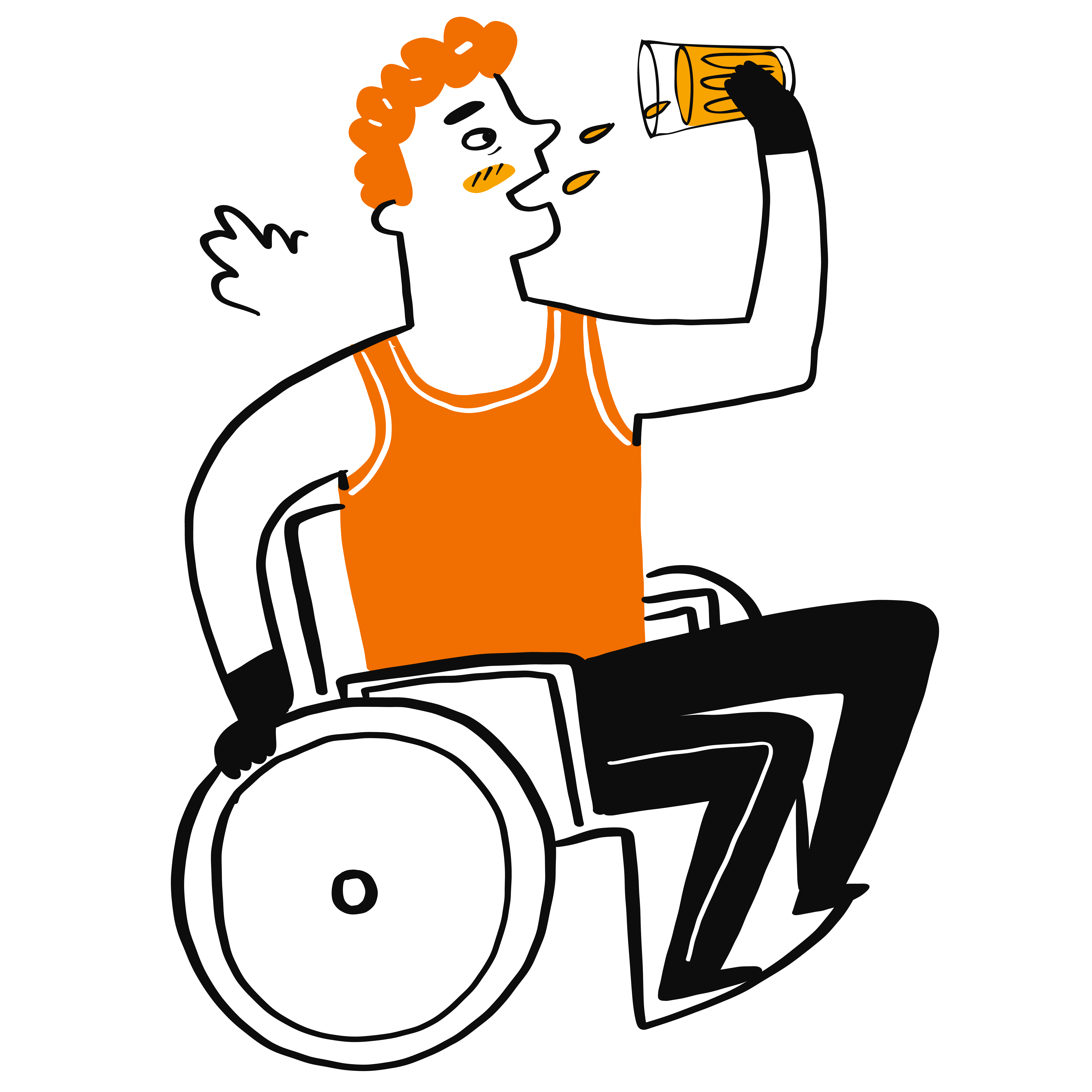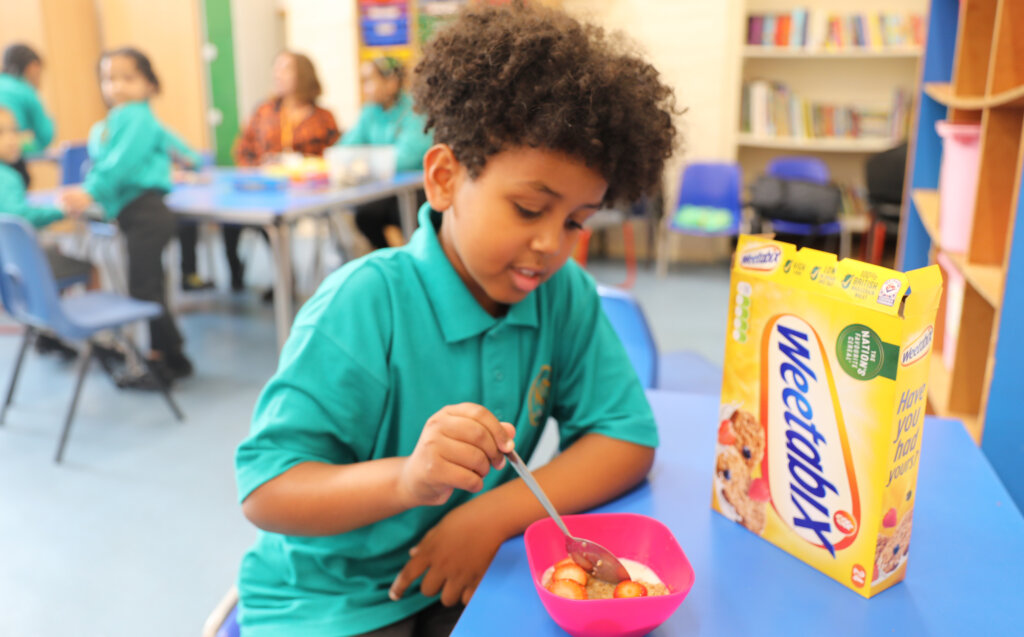The importance of breakfast for health and educational outcomes in children and young people was explored In a recent scientific review, commissioned by Magic Breakfast and conducted by the British Nutrition Foundation.
Key findings
1.
Many children and young people in the UK do not have access to a range of healthy foods which may affect their brain and overall development. This is particularly true for those living in low-income households.


2.
Breakfast skipping is much more common in adolescents, especially in teenage girls and those living in areas of high deprivation.
3.
Regularly missing out on breakfast increases the risk of children and young people not getting enough of the key nutrients they need for effective learning.


4.
Drinking water or milk is a simple, effective way to improve cognitive performance in school.
5.
Freely accessible, healthy breakfasts in school act as a nutritional safety net for vulnerable young people, providing an opportunity to narrow the gap in diet inequality.

What did the researchers discover about breakfast skipping?

Up to 30%
A large-scale studyi found that up to 30% of children and young people were skipping breakfast, starting their school day on an empty stomach.

17% vs 11%
A common finding across studiesii was that girls were more likely to skip breakfast than boys (17% vs 11%), with weight concerns being cited as one reason for not eating among adolescent girls.

Up to 30%
Another studyiii found that breakfast skipping was up to 30% higher among teenagers in the most deprived groups.
What are children and young people lacking in their diets?
Data from Public Health Englandiv highlights:
- Half of adolescent girls are not getting enough iron in their diets.
- Iron is needed for cognitive development
- 1 in 5 adolescents are not meeting the minimum recommended amounts for iodine or vitamin D.
- Vitamin D is essential for immunity and bone health
- 15% of adolescents are not getting enough calcium.
- Calcium is needed to develop strong bones
- Primary pupils are consuming around 30% less fibre than the recommended daily amount (of 20g); secondary pupils are consuming almost 50% less than the recommended amount (of 25-30g).
- Fibre supports healthy digestion and sustained energy
How does breakfast contribute to young people’s health?
A typical, balanced breakfast provides one third of a school child’s recommended daily food intake. In a large-scale study that compared nutritional intake and breakfast habits:
Breakfast eaters (of fortified cereals and other typical breakfast foods):
- had higher intakes of nutrients such as vitamins A and C, B vitamins, iron, calcium, iodine, magnesium, potassium and zinc.
- had a higher daily intake of important macronutrients, such as carbohydrate, fibre and protein, compared with breakfast skippers.
- were more likely to develop positive dietary habits, such as higher daily intakes of fruit and vegetables, dairy products and fortified cereals.
Breakfast skippers:
- consumed more fat, salt and sugar (from soft drinks) overall, with more of their daily calories coming from unhealthy snack foods.
Does eating breakfast support learning?
Yes! Various studies demonstrate that eating breakfast regularly has a positive impact on learning behaviours and attainment, particularly in children and young people from low socio-economic families.
- University of Leeds researchv suggests the clearest effects of introducing a free school breakfast were on mathematics and arithmetic grades in undernourished children.
- Conversely, skipping breakfast on school days was associated with poorer GSCE mathematics attainment in adolescents from low/middle socio-economic families.
Hydration is often overlooked, yet being hydrated is key to ensuring pupils can focus on a range of cognitive tasks (paying attention, short-term memory, reaction times, problem-solving). The availability of water (and/or milk) at schools in the morning is important for learning.
How does a freely accessible school breakfast help to narrow the gap in health and education inequalities?
Poverty correlates to poor physical, dental and mental health, obesity and malnutrition.
If children and young people from the most deprived areas are missing out on one of three main meals each day (possibly more than one meal if they are experiencing food insecurity at home), they may be at even greater risk of malnutrition and associated poor health outcomes, such as iron deficiency anaemia and poor bone health.vi
For many young people, particularly those from food-insecure households, breakfast will provide the energy they need for the day ahead and stop feelings of hunger that might affect their ability to focus and learn effectively.
Recommendations
What evidence did the scientists examine?
The review looked at studies from developed countries and included children aged 4 – 18 years and analysed evidence on breakfast habits linked to:
- nutrient intakes
- dietary quality
- weight outcomes
- cognitive (brain) function
- academic performance
- wellbeing
It also examined the role of providing school breakfasts in supporting these outcomes, particularly for children and young people living in low Socio-Economic Status (SES) households or in areas of high deprivation.
This research was commissioned by Magic Breakfast through support by Arla, Heinz and Quaker. All views expressed in the scientific review are the nutritional scientists’ own.











